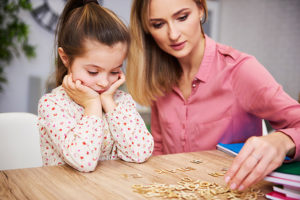“I may not be physically alone, but mentally there is no-one in sight.”
Feelings of loneliness, especially chronic loneliness, are very real feelings in our current state of self isolation and social distancing. We are social creatures and when we’re deprived of those social connections we start to feel lonely. When feelings of loneliness continue for lengthened periods of time our mental health is affected, amongst other things. This video from Closer Social Distancing explains it well and their site offers some great resources.
What are the symptoms of loneliness?
If you’re lonely, you may. feel sad, empty, ‘foggy’ or. as if you’re. lacking. something important when you spend time by yourself. Chronic loneliness can also involved the following symptoms.
- decreased energy
- feeling foggy or unable to focus
- insomnia, interrupted sleep issues
- decreased appetite
- feelings of self doubt, hopelessness or worthlessness
- a tendency to get sick frequently
- body aches and pains
- feelings on anxiousness or restlessness
- increased shopping
- substance misuse
- increased desire to binge-watch shows or movies
- cravings for physical warmth, such as hot drinks or cozy clothes and blankets.
The effects of loneliness on mental health
Feelings of loneliness and isolation can have devastating effects not only on your mental but also your physical health too.
It can lead to depression, suicide, increased stress levels, decreased memory, poor sleep quality, impaired executive function, accelerated cognitive decline, poor cardiovascular function and impaired immunity at every stage of life. It can also increase the risk of drug usage as well as premature death, according to the American Psychological Association
Loneliness and depression
Which comes first: loneliness or depression? There is a very distinct relationship between depression and loneliness and they generally feed into one another. Loneliness can lead to depression and visa versa.
Healthline states that the biggest difference between loneliness and depression is that depression is a mental health condition while loneliness is a feeling that tends to weigh you down as pervasively as depression does.
Loneliness is an emotional state that is strongly associated to our basic need for social connection and self worth.
We sometimes pass through phases of loneliness when things change in our lives and we lose the social connections we’re used to enjoying – a new job, increased workload, new school, new country, a relationship ended, quarantine and so on.
A break in these social connections, or a complete lack of meaningful, real relationships can lead to feelings of loneliness.
Generally, once those needs are met in a meaningful way those feelings begin to wane and we begin to feel less lonely and happier.
Depression however is different. It’s not based solely on social connection and without the correct treatment from a mental health professional and using preventative practices these feelings can linger for much longer and become more serious.
If you’re struggling with depression and need help take a look at the helplines listed here on our site.
How to deal with loneliness
If you feel like you’re struggling with feelings of loneliness here are a few suggestions to help you overcome this:
- Understand your feelings of loneliness. When do you feel lonely and why? How long have you felt that way? There may be a specific reason that if addressed could resolve those feelings of loneliness.
- Remember that loneliness is a feeling. Sometimes, simply by spending time with someone you enjoy can make you feel connected and change your thoughts and feelings.
- We need social connection. It might help you to start the day by making a list of at least one person who’s close to you that you could see, call or chat to. Follow through by speaking to them.
- Exercise or some form of body movement that you enjoy. Mental health and exercise are closely connected. Sometimes, simply going for a walk around the block or doing a Yoga class online can make you feel better about yourself and give you the confidence you need to be social.
- Keep a routine. Months in isolation can lead to broken schedules and low energy levels. Having a daily routine and a few action items to check off during the day can keep your mind busy and focused. Accomplishing your daily goals can help make you feel better about life.
- Be aware of your thoughts and what you’re allowing yourself to dwell on.
- Think of others. You may find that my focusing positively on others – their wellbeing, their joys, successes, etc may help you think less about your loneliness and change your mindset.
- Get creative. During quarantine we’re forced to find creative ways to be social. These could include online cooking classes, online forums that share your interests, creating a ‘lockdown chat group’ on Telegram or similar, go back to writing letters to friends and more.
Positive affirmations for loneliness
To overcome feelings of loneliness it can help to have a few affirmations to keep your mind healthy. Here are a few we’ve put together from various sources:
- I choose to wake up happy. When we wake up we generally have the power to decide if we’re going to be happy or not. That decision can have a powerful effect on how we see life and go about our day.
- I am grateful. Practicing gratefulness has long lasting effects on our brain and helps free us of toxic emotions.
- Everyone feels lonely at some stage in their life. It’s normal to feel lonely from time to time. Be kind and accepting towards yourself knowing that loneliness will pass.
- I am valuable and loved. It’s important not to allow your temporary feelings to dictate what you believe and what is true about you.
How to help the elderly with loneliness
A group of people we need to keep in mind, where loneliness is a very real struggle is the elderly. As we age we tend to become more socially isolated due to lack of community, mobility and numerous other reasons. To end off, here are a few ways you can help the elderly overcome these feelings of loneliness.
- Help them maintain a sense of purpose, whether that’s a role within the family structure, a daily activity or exercise, a hobby, etc.
- Keep them connected socially. This may be more difficult in quarantine but regular phone calls or a family chat group can help.
- Ensure they are getting enough sleep, exercise and are eating healthily.
- Teach them how to use a meditation, gratitude or personal interest app.
- Show them that they are loved. As social creatures we all respond to love, particularly in the case of the elderly who may be feeling the lack of social connection.



